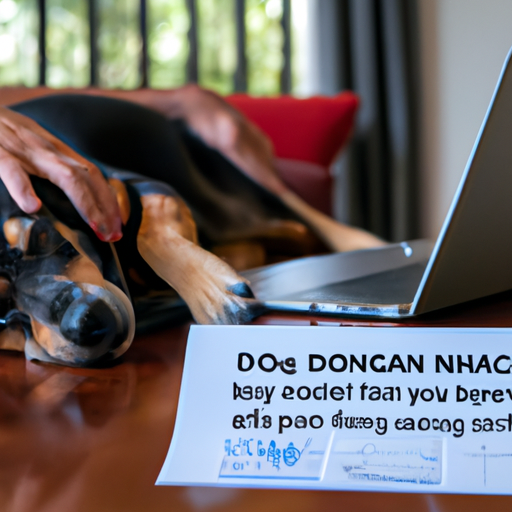Blood work is a crucial part of veterinary medicine, providing essential information about your dog’s health. But, how much does it cost? Let’s break it down for you.
Understanding the Need for Blood Work in Dogs
Blood work for dogs is not much different from that of humans. It allows veterinarians to evaluate your dog’s overall health, identify disease processes early, and monitor the progress of treatment.
The cost varies, depending on numerous factors such as the type of test, your location, and the specific health condition of your pet. Understanding these variables can help you anticipate the potential expenses and ensure your furry friend receives the best care possible.
The Different Types of Blood Work and Their Costs
Dog blood work typically falls into two categories: a Complete Blood Count (CBC) and a blood chemistry panel.
-
CBC: This test provides information about the blood cells, including red blood cells, white blood cells, and platelets. It can help detect conditions like anemia, infections, and blood clotting issues. The cost usually ranges between $50 and $100.
-
Blood Chemistry Panel: This test assesses various chemical components in the blood, such as enzymes, electrolytes, and proteins. It can help diagnose diseases of the liver, kidney, or pancreas. The cost tends to be higher than a CBC, typically ranging from $100 to $150.
| Type of Blood Work | Cost |
|---|---|
| CBC | $50 to $100 |
| Blood Chemistry Panel | $100 to $150 |
Factors Influencing the Cost of Blood Work
Several factors can influence the cost of blood work for dogs. Here are the top three:
-
Geographical Location: The cost of living in your area can significantly affect the price of veterinary services, including blood work.
-
Individual Veterinarian Pricing: Each veterinary clinic sets its prices for services. Some may bundle blood work with other tests or procedures, which can affect the cost.
-
Your Dog’s Health Condition: If your dog has an existing health condition, additional or specialized tests may be required, which will increase the cost.
Budgeting for Your Dog’s Blood Work
When it comes to budgeting for your dog’s health, consider the following:
- Regular check-ups are less expensive than emergency visits.
- Preventive care, like regular blood work, can help detect potential issues early, potentially saving you money in the long run.
- Ask your vet about any available payment plans or pet insurance options that can help manage the cost.
When Blood Work is Necessary for Your Dog
While routine blood work is recommended for all dogs, it’s crucial for:
- Senior dogs, to monitor any changes that could indicate health issues.
- Dogs with existing health conditions, to monitor their condition and adjust treatment as necessary.
- Dogs on long-term medication, to ensure the drug is not causing any adverse effects.
FAQ
Q: How often should my dog have blood work done?
A: For healthy dogs, once a year is usually sufficient. However, older dogs or those with chronic health conditions may need more frequent testing, as advised by your vet.
Q: Can I request specific tests to be done?
A: Yes, you can request specific tests. However, your vet will guide you on which tests are most beneficial for your dog’s health.
Q: Is blood work necessary before surgery?
A: Yes, pre-surgical blood work is crucial to ensure your dog is healthy enough for anesthesia and surgery.
Q: Can blood work detect cancer in dogs?
A: While blood work cannot diagnose cancer directly, it can provide clues about your dog’s overall health and detect abnormalities that may require further investigation.
Your dog’s health is a top priority. By understanding the importance and cost of blood work, you can ensure your furry friend gets the care they need.



